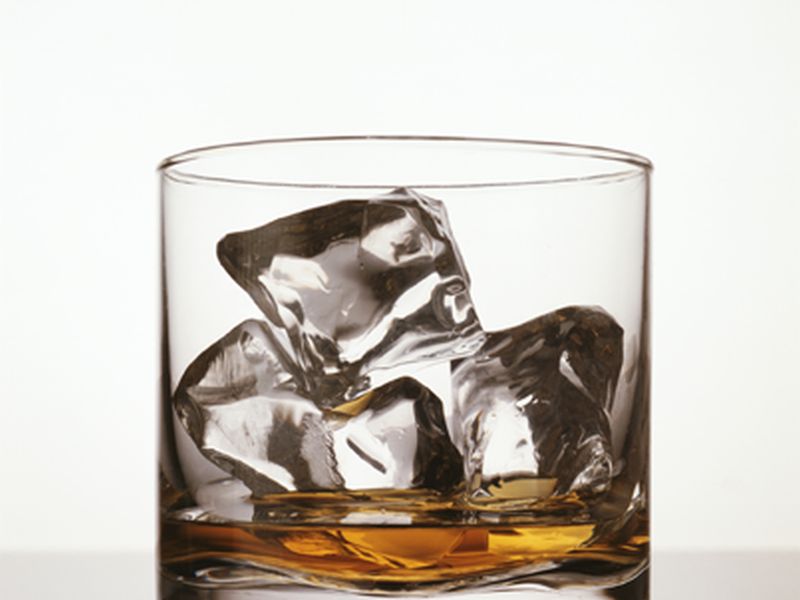
Wednesday, March 2, 2016

WEDNESDAY, March 2, 2016 (HealthDay News) -- In as little as an hour after sipping a glass of wine or enjoying a cocktail, your risk of heart trouble and stroke may go up, new research suggests.
The good news is that within 24 hours, that same alcoholic beverage may protect against heart problems and stroke, the Harvard University researchers said. But, heavy drinkers don't seem to get those protective effects.
"Heavy drinking increases risk both in the short term and the long term, but drinking smaller amounts has different effects in the subsequent hours than it does in the subsequent days and weeks," said lead researcher Elizabeth Mostofsky. She's an instructor at the Harvard School of Public Health and a postdoctoral fellow at Beth Israel Deaconess Medical Center in Boston.
It's possible that the higher risk that occurs in the hours after drinking small amounts of alcohol may be outweighed by the long-term health benefits of moderate drinking, she said.
"If you drink, do so in moderation," Mostofsky said. "There is consistent evidence that heavy drinking raises the risk of heart attack and stroke both in the long and short term."
It's important to note, however, that this study did not prove a cause-and-effect relationship. It only showed an association between drinking alcohol and heart disease and stroke risk.
The study was published March 2 in the journal Circulation. The findings were also to be presented Wednesday at an American Heart Association meeting in Phoenix.
Moderate drinking is defined as up to one drink a day for women and up to two drinks a day for men, according to the 2015 Dietary Guidelines for Americans. The guidelines define heavy drinking as more than four drinks a day for women (or more than eight drinks a week). For men, heavy drinking is more than five drinks in a day or 15 or more in a week.
The guidelines define one drink as a 12-ounce beer, 5 ounces of wine or 1.5 ounces of distilled spirits.
After having a drink, blood pressure rises and blood platelets, which are essential for clotting, become stickier, increasing the risk of heart attack and stroke, Mostofsky said.
Regularly drinking a little alcohol, however, appears to increase levels of HDL ("good") cholesterol and reduce clotting, she said.
For the study, Mostofsky and colleagues reviewed 23 previously published studies that compared the risk of heart attack and stroke in the hours and days after drinking alcohol. In all, nearly 30,000 people were included in these studies.
The researchers found that within one to three hours, a single drink of alcohol increased heart rate and disrupted the heart's normal rhythm. But at 24 hours, moderate drinking improved blood flow, the functioning of the lining of blood vessels and reduced clotting, the study showed.
Moderate drinking -- up to six drinks a week in the studies -- immediately increased the risk for heart attack and stroke, Mostofsky said. But within a day, it was protective and tied to a lower risk of heart attack or stroke from bleeding. Within a week, moderate drinking was linked with a lower risk of stroke from clots, she said.
Heavy drinking, however, was associated with higher risk of heart attack and stroke across the board, she said. Six to nine drinks a day increased the risk as much as twofold, while 19 to 30 drinks a week increased the risk as much as six times, the research revealed.
Other factors that might affect these findings, such as the age of participants or whether or not they had heart disease, couldn't be evaluated in this study, Mostofsky said.
Dr. Gregg Fonarow, a professor of cardiology at the University of California, Los Angeles, said, "Alcohol has complex effects that may increase or decrease cardiovascular risk."
Heavy drinking is associated with increased risk of heart attack and stroke in the hours and days after drinking, "and for this, and a variety of other reasons, is best avoided," he said.
SOURCES: Elizabeth Mostofsky, Sc.D., instructor, Harvard School of Public Health, and postdoctoral fellow, Beth Israel Deaconess Medical Center, Boston; Gregg Fonarow, M.D., professor, cardiology, University of California, Los Angeles; March 2, 2016, presentation, American Heart Association Epidemiology and Prevention/Lifestyle 2016 Scientific Sessions, Phoenix; March 2, 2016, Circulation
HealthDay
Copyright (c) 2016 HealthDay. All rights reserved.
- More Health News on:
- Alcohol
- Alcoholism and Alcohol Abuse
- Heart Diseases





























.png)











No hay comentarios:
Publicar un comentario